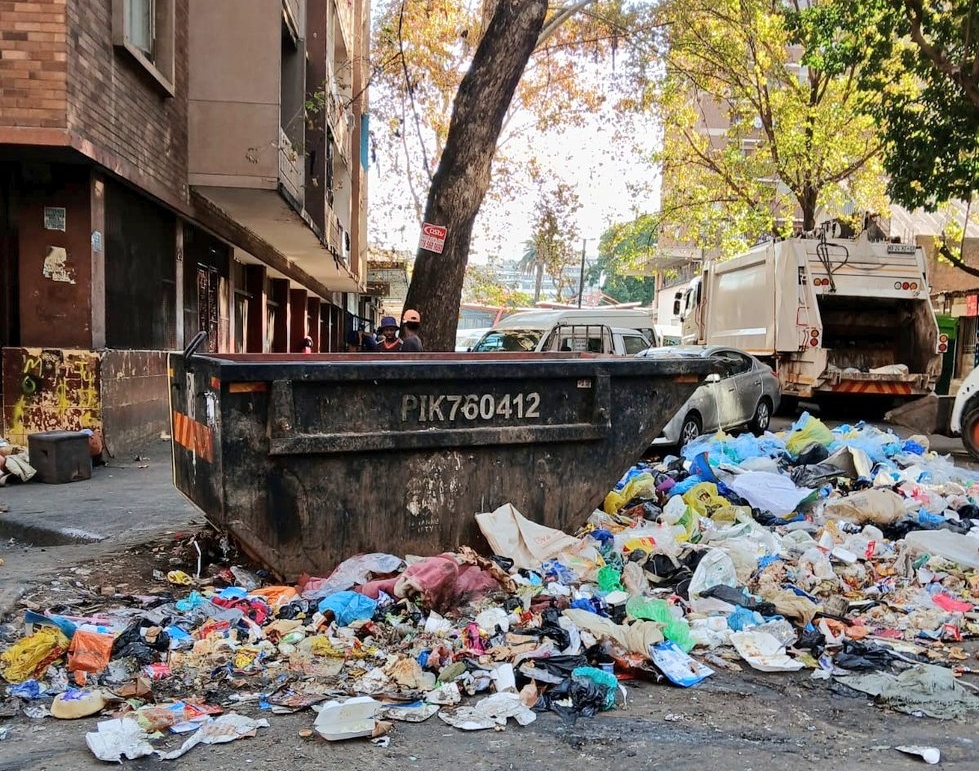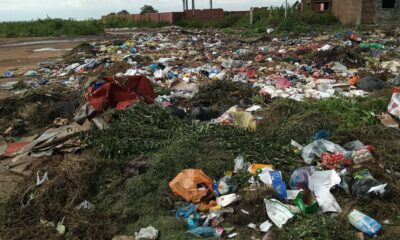News
From Trash to Treasure: Can South Africa Turn Waste into Wealth?

South Africa’s streets tell a story that’s hard to ignore. Overflowing bins, illegal dumping hotspots, and the quiet hustle of waste pickers pulling trolleys through morning traffic. It’s a crisis most of us walk past daily, but behind the mess is a massive opportunity—and one we can no longer afford to waste.
Millions of Tons, Missed Opportunities
In 2025 alone, an estimated 3.67 million tons of domestic waste went uncollected in South Africa. That’s not just a sanitation nightmare—it’s a missed economic opportunity. The waste is piling up, yet many of the people doing the work to manage it—the informal recyclers—are barely recognised, let alone supported.
Despite their vital role in salvaging over 80% of the country’s recyclables, waste pickers remain largely outside of formal systems. These are not just marginalised workers—they are the backbone of any potential circular economy. But right now, they’re doing the job that government and industry should be investing in.
A Global Glimpse: What BRICS+ Countries Are Doing Right
South Africa isn’t alone in this. Across the BRICS+ bloc, countries are grappling with how to transform trash into sustainable, job-creating treasure.
India has embraced decentralised waste management with community buy-in, public education, and integration of its informal sector through the Swachh Bharat mission. Brazil, meanwhile, has thriving waste picker cooperatives and smart policy frameworks like Extended Producer Responsibility (EPR) and reverse logistics.
China is taking a more high-tech route with AI-powered sorting and smart bins. Even newer BRICS+ partners like Indonesia, UAE, Egypt, and Iran are pushing ahead with modern recycling infrastructure and national awareness campaigns.
But here’s the rub—those solutions work because they fit their local context. What works in Mumbai won’t work in Mamelodi without proper adaptation.
Centralised Systems, Fragmented Action
South Africa’s waste sector is caught in a classic trap: great policy, poor implementation. From the Climate Change Act to National Waste Management Strategy targets (which aim to divert 70% of waste from landfills by 2035), the blueprints exist. But municipalities are underfunded, often mismanaged, and too centralised to empower localised innovation.
Take Cape Town, for instance. Some suburbs are piloting organic waste projects and material recovery facilities. But most of the country still depends almost entirely on landfilling. The gap between urban and peri-urban waste services is growing—just like the trash piles.
Informal Recyclers: The Unsung Heroes
If South Africa wants a real shot at a circular economy, the informal sector must be brought into the centre. Not just acknowledged—but paid, protected, and professionalised.
This isn’t about charity. It’s about economic logic. Cooperatives in Brazil and public-private platforms in India are showing how waste pickers can be trained, equipped, and organised into viable green businesses. South Africa’s Green Fund (R800 million) is a start—but what we really need is a national, coordinated push backed by the private sector, municipalities, and government.
The BRICS+ Opportunity
At the recent BRICS+ environmental summit, leaders discussed joint waste solutions—from climate financing and technology sharing to research partnerships. If those talks translate into real action, they could help countries like Uganda and Uzbekistan leapfrog old mistakes and learn directly from India, China, or Brazil.
South Africa, however, doesn’t need to wait for outside help. What it needs is better enforcement of existing laws, smarter city-level planning, and a deeper partnership with the people already making recycling happen.
A Circular Future is a Just Future
This isn’t just about cutting landfill waste. A circular economy means green jobs, reduced public health risks, and a cleaner urban environment. For a country battling unemployment, inequality, and environmental degradation, circularity isn’t a luxury. It’s a lifeline.
South Africa’s waste problem could be its next big economic solution—but only if we treat the people, systems, and policies behind it as part of the solution too.
The crisis is real. So is the potential. It’s time to turn trash into treasure—together.
Source:IOL
Follow Joburg ETC on Facebook, Twitter , TikTok and Instagram
For more News in Johannesburg, visit joburgetc.com



























